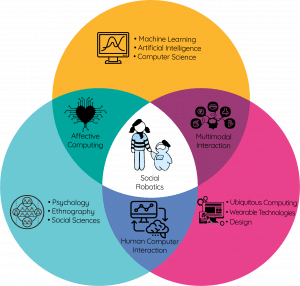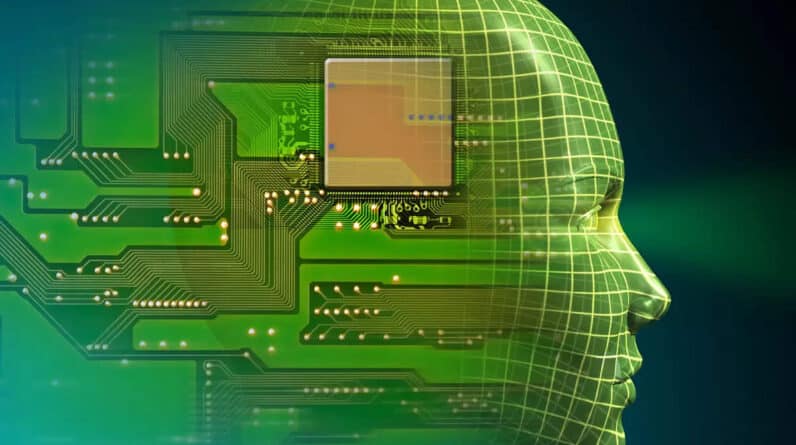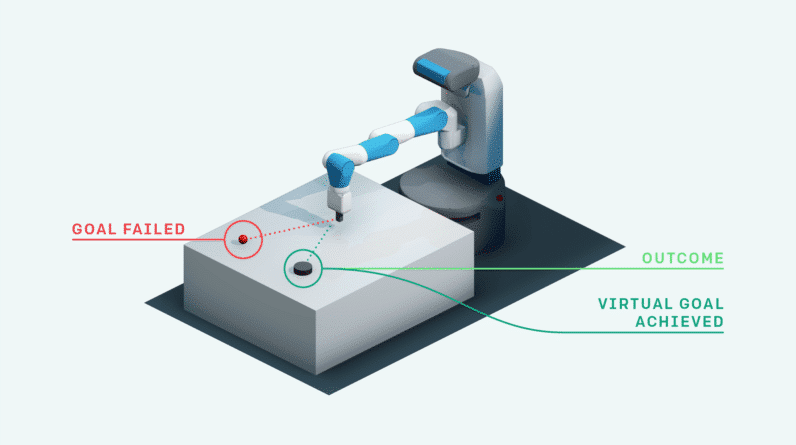In the world of music composition, a groundbreaking revolution is underway. Artificial Intelligence (AI) has taken center stage, holding the promise of transforming the way music is created. With its unparalleled ability to analyze vast amounts of data and learn from patterns, AI has opened doors to endless possibilities in the realm of algorithmic music. This innovative approach is challenging traditional methods and paving the way for a new era where machines and creativity harmoniously coexist. Join us as we embark on a journey exploring the rise of algorithmic music and the profound impact AI is having on the future of music composition.

Introduction
In recent years, the integration of Artificial Intelligence (AI) into various aspects of our lives has been nothing short of revolutionary. From voice assistants to self-driving cars, AI has proven its capability to enhance and streamline our daily routines. In the realm of music composition, AI has also emerged as a powerful tool, revolutionizing the creative process and redefining the boundaries of musical expression. Algorithmic music, created with the assistance of AI, has the potential to unlock new levels of creativity and innovation. In this article, we will explore the impact of AI on music composition, the benefits and challenges of algorithmic music, the various AI tools and platforms available, the role of AI in music education, and the future of algorithmic music.
The Impact of AI on Music Composition
AI’s Influence on the Creative Process
AI’s influence on the creative process in music composition has been truly transformative. With AI algorithms capable of analyzing vast amounts of musical data, composers can now draw inspiration from a comprehensive database of musical patterns and styles. This not only sparks new ideas but also enhances the creative potential of musicians by providing them with fresh perspectives. Additionally, AI can generate musical suggestions based on a composer’s input, acting as a collaborator and expanding the creative possibilities.
AI’s Ability to Analyze and Interpret Music
One of the remarkable strengths of AI in music composition is its ability to analyze and interpret music. AI algorithms can identify patterns, chord progressions, and melodic structures within a piece of music, providing composers with valuable insights into their own compositions. By understanding the nuances of their own work, composers can refine and improve their musical compositions, resulting in more nuanced and sophisticated pieces.
AI’s Role in Collaborative Composition
AI has also proven to be an invaluable asset in collaborative composition projects. By enabling real-time generation of musical ideas, AI can enhance the collaborative process between musicians, composers, and producers. With AI algorithms generating musical suggestions based on the input from multiple collaborators, the creative possibilities become limitless. This collaborative aspect of algorithmic music not only fosters innovation but also promotes a sense of shared ownership and creativity.
AI’s Impact on Music Genre Evolution
Another exciting aspect of AI’s impact on music composition is its ability to push the boundaries of musical genres and facilitate genre evolution. By analyzing and understanding the characteristics of different musical genres, AI algorithms can generate compositions that combine elements from multiple genres. This mixing of genres not only creates unique and experimental soundscapes but also challenges traditional notions of music genres and fosters the birth of new musical genres.

Benefits of Algorithmic Music
Enhanced Creativity and Inspiration
Algorithmic music opens up new avenues for creativity and inspiration. By leveraging AI algorithms, composers can explore musical patterns and ideas that they may not have come across otherwise. The vast database of musical data analyzed by AI allows composers to draw from a wide range of musical styles and influences, inspiring fresh and unconventional compositions.
Increased Efficiency and Productivity
Another significant benefit of algorithmic music is the increased efficiency and productivity it offers to composers. AI algorithms can generate musical suggestions and compositions in real-time, significantly reducing the time and effort required to create new music. This increased efficiency allows composers to focus more on the creative aspects of their work, rather than getting caught up in repetitive tasks.
Broadened Accessibility and Inclusivity
Algorithmic music has the potential to broaden the accessibility and inclusivity of music creation. For individuals with limited technical musical knowledge, AI-powered composition tools can provide a user-friendly interface and assist in the creation of music. This opens up the world of music composition to a wider audience, allowing anyone with a passion for music to engage in the creative process.
Unique and Experimental Soundscapes
Lastly, algorithmic music offers composers the opportunity to explore unique and experimental soundscapes. By combining the computational power of AI with creative human input, composers can create compositions that transcend traditional musical boundaries. This allows for the creation of entirely new sonic experiences and pushes the boundaries of what is considered “normal” in music.
Challenges and Limitations of Algorithmic Music
Preserving the Role of Human Creativity
While AI can greatly enhance the creative process, it is essential to preserve the role of human creativity in music composition. The unique ability of humans to express emotions, imagination, and personal experiences through music is a crucial aspect of musical composition. AI should be seen as a tool to assist and inspire, rather than replacing human creativity entirely.
Overcoming Predictability and Monotony
Algorithmic music runs the risk of becoming predictable and monotonous if overreliance on AI algorithms leads to repetitive patterns. Composers must consciously incorporate human creativity and originality to avoid falling into this trap. By actively engaging with the ideas generated by AI, composers can ensure that their compositions retain a distinctive and varied character.
Ensuring Ethical and Cultural Sensitivity
As algorithmic music becomes more prominent, it is essential to consider ethical and cultural sensitivities. AI algorithms, when trained on biased data, can inadvertently perpetuate stereotypes or exclude certain cultural expressions. Composers and AI developers must be mindful of these biases and work towards ensuring diversity and inclusion in the compositions generated by AI.
Balancing Trust and Autonomy in Composition
Another challenge is striking a balance between trusting AI suggestions and maintaining a feeling of autonomy in the composition process. While AI algorithms can provide valuable insights and suggestions, composers should have the final say in their creations. It is crucial to strike a balance between using AI as a collaborator and maintaining the integrity of creative decision-making.

AI Tools and Platforms for Music Composition
Neuroscientist-Composer Collaboration Platforms
Neuroscientist-composer collaboration platforms allow for interdisciplinary collaborations between artists and scientists. These platforms integrate AI algorithms that analyze brainwave data and translate it into musical compositions. By bridging the gap between neuroscience and music, these tools enable composers to create music based on the patterns and rhythms of brain activity, resulting in unique and captivating compositions.
Machine Learning-Driven Composition Software
Machine learning-driven composition software provides composers with AI-generated musical suggestions and compositional tools. These software platforms employ AI algorithms to analyze vast musical databases and generate musical ideas based on a composer’s input. Composers can then use these suggestions as a starting point for their compositions or further refine them according to their artistic vision.
Real-time AI-Assisted Performance Systems
Real-time AI-assisted performance systems are designed to enhance live musical performances. These systems employ AI algorithms capable of analyzing a musician’s playing in real-time and generating complementary musical responses. This creates a dynamic and interactive performance experience, where the musician and AI algorithm engage in a musical dialogue, pushing the boundaries of improvisation and expression.
The Role of AI in Music Education
Enabling Personalized Learning Experiences
AI has the potential to revolutionize music education by enabling personalized learning experiences. AI algorithms can analyze a student’s musical aptitude and learning style, tailoring lessons and practice materials to their specific needs. This personalized approach allows students to progress at their own pace, explore different musical genres, and receive individualized feedback, ultimately enhancing their learning experience.
Enhancing Music Theory and Analysis Skills
AI tools can also enhance music theory and analysis skills. By analyzing vast amounts of musical data, AI algorithms can identify patterns, structures, and techniques that are prevalent in different musical genres. Students can then use this knowledge to deepen their understanding of music theory, improve their improvisation skills, and expand their musical vocabulary.
Empowering Collaborative Composition Projects
AI plays a crucial role in empowering collaborative composition projects in music education. By providing real-time generation of musical ideas and suggestions, AI algorithms foster collaboration between students, allowing them to create music together more seamlessly. This collaborative aspect not only enhances students’ creativity but also promotes teamwork and communication skills.

The Future of Algorithmic Music
AI’s Potential to Revolutionize Music Creation
The future of algorithmic music holds tremendous potential for revolutionizing music creation as we know it. AI algorithms will continue to evolve, becoming more sophisticated and capable of generating compositions that blur the lines between human and machine. The integration of AI into the creative process will unlock new levels of creativity and push the boundaries of musical expression.
Ethical Considerations and Decision-Making Processes
As algorithmic music becomes more prevalent, it is essential to address the ethical considerations and decision-making processes surrounding its use. Questions of ownership and copyright arise when AI algorithms generate compositions, challenging traditional notions of authorship. Additionally, ethical considerations regarding cultural sensitivity, bias, and inclusivity must be taken into account to ensure algorithmic music reflects the diversity of our society.
Defining Success and Quality in Algorithmic Composition
Defining success and quality in algorithmic composition is another aspect that requires careful consideration. As algorithmic music becomes more prominent, it is necessary to establish criteria for evaluating the artistic merit of compositions generated by AI. Balancing objective measures, such as technical proficiency and innovative use of AI, with subjective elements, such as emotional impact and artistic expression, will be crucial in evaluating the quality of algorithmic composition.
Integration of AI with Human Musicians
Ultimately, the future of algorithmic music lies in the integration of AI with human musicians. AI will continue to assist and inspire human creativity, rather than replacing it. Musicians will collaborate with AI algorithms, leveraging their computational power and analytical capabilities, while bringing their own unique artistic vision and emotional expression to the compositions. This symbiotic relationship between humans and AI will pave the way for groundbreaking musical creations.
Ethical Considerations in Algorithmic Music
Ownership and Copyright Issues
Algorithmic music raises complex issues surrounding ownership and copyright. When AI algorithms generate compositions, questions arise regarding the rightful ownership of these works. Should the composer be credited, or should credit be given to the AI algorithm that generated the music? These questions challenge traditional notions of authorship and require careful consideration and legal frameworks to address.
Authenticity and Attribution of Algorithmic Works
Another important ethical consideration in algorithmic music is the authenticity and attribution of algorithmic works. When AI algorithms generate compositions, there is a risk of the music lacking a genuine emotional expression or personal authenticity. Composers must ensure that they actively infuse their compositions with their own artistic vision and emotions, maintaining the sense of authenticity and personal connection.
Ensuring Diversity and Representation in Music Creation
As algorithmic music becomes more prominent, it is crucial to ensure diversity and representation in music creation. AI algorithms, when trained on biased or limited data, can inadvertently perpetuate stereotypes or exclude certain cultural expressions. Composers and AI developers must actively work towards diversifying the datasets used to train AI algorithms and promote inclusivity, ensuring that algorithmic music reflects the diversity of our society.

Conclusion
The rise of algorithmic music, powered by AI, has brought about transformative changes in the realm of music composition. With AI’s influence on the creative process, its ability to analyze and interpret music, and its role in collaborative composition, algorithmic music enables composers to explore new creative frontiers. The benefits of algorithmic music, such as enhanced creativity, increased efficiency, and broadened accessibility, make it a powerful tool for musicians. However, challenges and ethical considerations must be addressed to preserve the role of human creativity, ensure diverse and culturally sensitive compositions, and accurately attribute ownership. The future of algorithmic music holds great promise, with AI revolutionizing music creation and shaping the way we experience and appreciate music.






